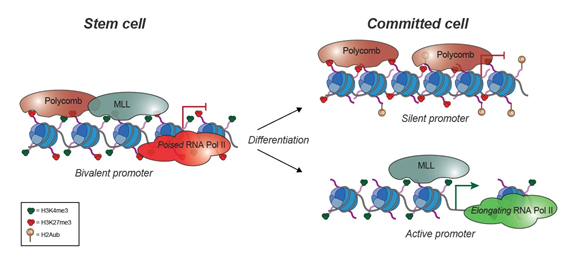Summary
Embryonic stem (ES) cells have the potential to both renew indefinitely in culture, and to differentiate into every cell type of the body. Both processes, self-renewal and differentiation, are governed by transcriptional activation or repression of the relevant genes. Polycomb proteins play a key role in regulating ES cell fate and differentiation. Mechanistically, they function within multiprotein complexes, called Polycomb repressive complexes (PRCs), which modify histones (and other proteins) and silence target genes. On the other hand, Polycomb proteins are often misregulated in human cancers.
Therefore, the research in our group is focused on the characterization of the role of key components of the Polycomb complex (including novel interactors) in regulating gene expression, stem cell differentiation, chromatin compaction and carcinogenesis processes.
Research projects
- Variations in the composition of PcG complexes during mESC differentiation
- Role of PCL proteins in mESC differentiation and cancer
- Characterization of novel interactors of Polycomb complexes
- Role Zrf1 in the establishments and maintenance of neural progenitor identity
